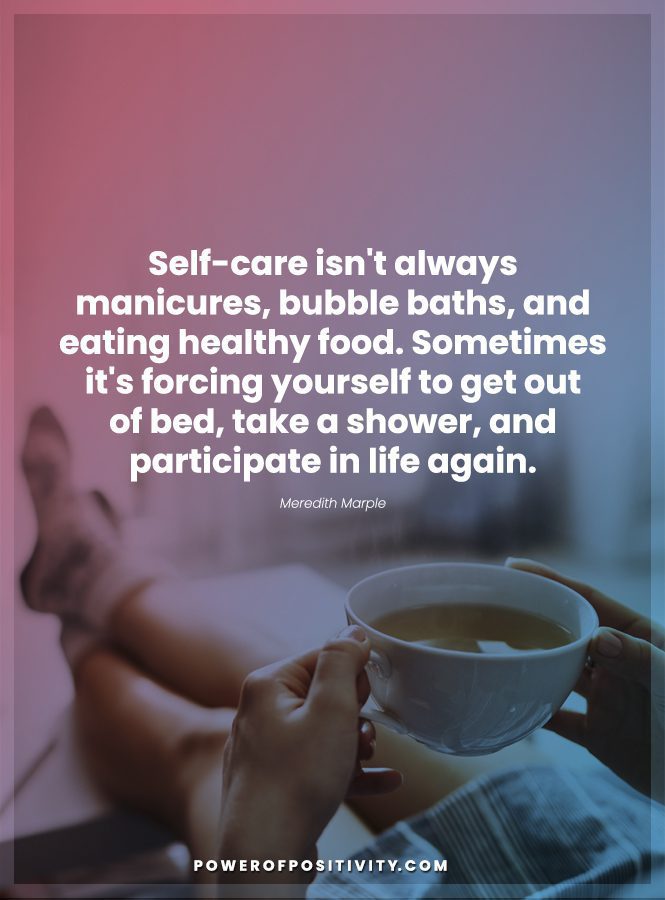Many assume maturity comes with age, but that is far from the case. Contrary to that popular belief, maturity isn’t all about getting older. It’s about the way one behaves, carry themselves, and interact with the world around them. If you’re someone who strives to be an individual of maturity, then we just might be able to help. Here is a list of some behaviors of a mature person.
Here Are 10 Behaviors Of A Mature Person
“One of the blessings of maturity is that it sometimes brings one greater courage to be truthful, regardless of what those who do not understand, may think or say.” – Napoleon Hill
1. Mature people display strength
Being strong is one of the key markers of any mature individual. They keep their heads held high and bravely work through their problems by logically seeking solutions. They don’t back down from a challenge and know how to stand up for themselves and others.
This doesn’t mean that a mature person doesn’t go through trials or have moments where they aren’t their best. It means they get back up again and never give up, knowing that these hardships, too, will pass. They never demand sympathy from those around them and instead take pride in paving their own way through life.
2. Patience
Mature individuals are aware that they rarely receive instant results. They understand that good things take time. As such, they are happy to wait patiently to receive positive outcomes from their efforts. They are also willing to take their time to perfect something rather than rush to the finish line as fast as they can.
This means that a mature person is patient with others. They understand that everyone has their own lives, thoughts, and feelings and therefore will not always act the way they expect. As such, mature individuals forgive of those around them, within reason.
3. Mature people show gratitude
Gratitude is one of a mature person’s most beautiful and humbling traits. Instead of being angry at the world for what they lack, someone with maturity is always thankful for the blessings and good things in life, whether big or small.
Someone mature can see the best things in their life and remember them when the going gets tough. They are grateful that they have a better life than many others and do what they can to help those less fortunate.
4. Tolerance and an open mind
Someone who is mature does not have mental walls that prevent them from seeing the world through the eyes of those with different experiences. They have a degree of liberalism that allows them to be tolerant of others.
This doesn’t necessarily mean a mature person always agrees with everyone else’s thoughts or beliefs. It just means they can respect differences in opinion. They know that it is not their place to judge others and thus they keep an open mind. This results in respectful and intellectual discussions or peaceful side-by-side living.
5. Compassion and care towards others
One of the most important parts of being mature is not being self-centered. Mature people care about the experiences of those around them and are compassionate towards others. They seek to help humanity or better the lives of others in whatever way they are able.
A mature individual is not troubled by the necessity to put others before themselves. They understand that the world does not and should not revolve around them. Instead, they treasure moments when they can help other people and do not harbor resentment for it.
6. Mature people have balanced optimism
A mature person practices positive thinking in a realistic way. They can stay optimistic and positive without floating off the ground. While they know things do not always go according to plan and good things cannot constantly happen in life, they keep their minds positive and see the possibilities that the future holds. These mature people refuse to be pessimistic and negative, for this is a quick track to sadness and despair. They do not have the time to waste on feeding negativity.
7. Honesty
Someone who is mature does not see the need for lies or deceit. Instead, they believe that being sincere and honest is always the best bet. Additionally, they find it pointless to hide the truth from those around them. These mature individuals are therefore honest about who they are. They are comfortable in their own skin and don’t feel the need to mask their true identities or personalities. They enjoy being genuine, open people, and know that those in their lives who truly matter will like it when they are themselves.
8. Humility
You cannot be mature without being humble. Someone with these traits will not be interested in groveling for attention or praise when they do excellent work. The knowledge that they have done a good job is more than enough for them.
This doesn’t mean these people are not proud of themselves! They appreciate their hard work and are confident in their abilities, but they know that they are not above those around them. They do their best in everyday life because they are intrinsically motivated to do so.
9. Self-awareness and accountability
Someone who is mature is always aware of the effects of their actions. They know that everything has a positive or negative consequence and realize that their actions are no exception. They view themselves unbiasedly and see how others might perceive their behavior or actions.
This also means that a mature person can hold themselves accountable when they make mistakes that affect those around them. They are ready to take responsibility and own up for errors and do what they can to make it right.
10. A strong desire to learn and improve
Although mature individuals practice all these behaviors, they also know they have much left to learn in life. They realize that their wisdom and knowledge is limited and that they don’t know the answers to everything in the world. Thus, they are eager to learn new things daily and seek to expand their horizons regularly. They are also happy to take pointers from those with more knowledge and enjoy gathering new information and wisdom from those around them.
Final Thoughts on the Traits of a Mature Person
Maturity is a trait many desire, but few know how to earn. By studying these common behaviors of mature individuals, you can incorporate them into your everyday life and become that mature, graceful, and good person you have always wanted to be!











